Why Have So Many Turned Their Back On Boxing?
I became interested in boxing in the late 70s, if memory serves. That’s quite a while ago. Indeed, the first major fight I remember being truly invested in, as opposed to just being a kid fascinated with what my dad was watching on television, was the first battle between Sugar Ray Leonard and Roberto Duran back in 1980. The day after that classic, 15 round throwdown, I remember the event being splattered all over the local sports pages, replete with numerous pictures of the action.
How far boxing has fallen. Today Leonard and Duran are unquestionably more well-known than modern stars like Canelo Alvarez and Gennady Golovkin. Why? Because over the last few decades, loads of people, at least here in North America, have thrown up their arms and walked away from The Sweet Science.
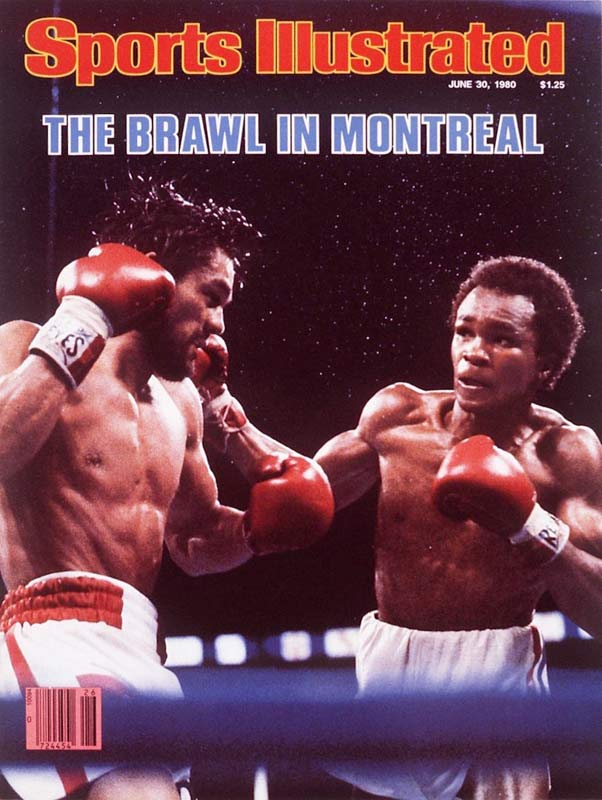
But why did this happen? Why has boxing become marginalized in North America (save for Mexico, thank goodness)? It’s a vexing question and one which I decided needed to be discussed with former fans in order to get some kind of answer. The following individuals are people I know and respect (full disclosure: one is even a relative). Indeed, this is a casual sample, not a scientific one.
But there’s some things these people have in common, besides being associated with Yours Truly. They’re all intelligent and articulate and each one was, once upon a time, a serious fight fan. They had watched boxing and followed the sport with interest. But no longer. Here’s what they have to say:
“I was very young,” states accountant James Mitchell, “and Ali, Frazier, Foreman, Norton and then Hagler, Hearns and Leonard were all larger-than-life characters to me. The only person who could compare later on was Tyson.”
Does this mean the sport is still suffering through its post-Tyson stage?
“I tried to watch heavyweight boxing after the aforementioned were done,” Mitchell adds, “and it was boring and slow.”
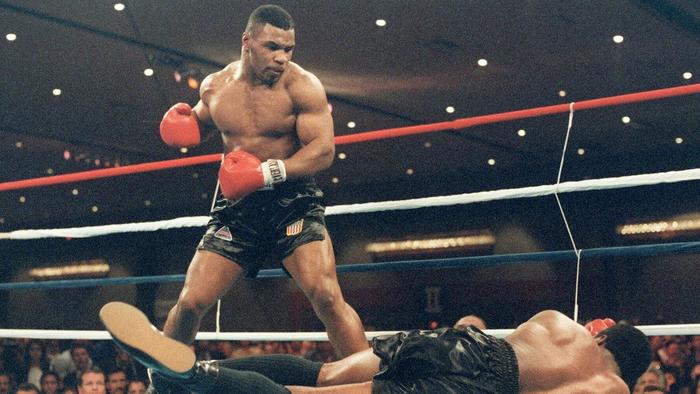
Sure enough, the heavyweight reign of Wladimir Klitschko wasn’t consumer friendly to North American sports fans. Generally speaking, we like our fighters to excite and entertain; methodical has never been a big selling point here, for better or for worse. We also, as Mitchell indicates, like our heavyweights. An era without a heavyweight North Americans find worth watching is a Lenten era indeed.
Audio Engineer and long-time fight fan Al Lopez echoed Mitchell’s sentiments when it came to boxing being less than exciting these days. Lopez claims he “was a fan, but boxing lost its flair.” While admitting that moving on in life may have had something to do with his walking away from the sport, Lopez argues that, simply put, pugilism has lost its allure.
“Maybe I found other interests,” he reflects. “Or maybe boxing wasn’t as exciting or glamorous as it once was, but I just don’t go out of my way to watch a fight anymore.”
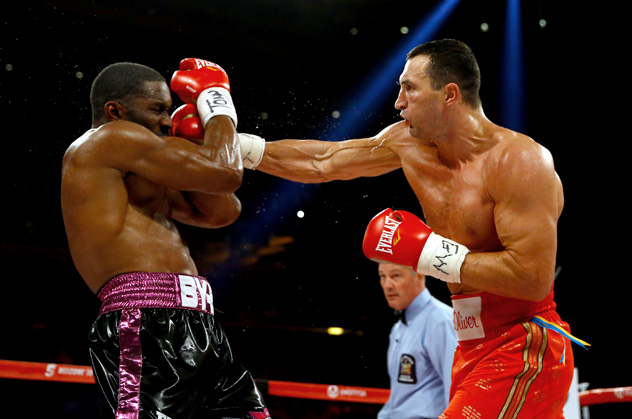
Jeff Strba, who is about to retire after a long career in the fresh produce business, takes a philosophical approach to the subject of his being a former, rather than a current, fan. “Any sport is in business to turn a profit,” he states. “But the question is, at what point does the capacity to make money outweigh the integrity of the sport?”
This from a man who was once a diehard.
“I was a long-time fan,” Strba states. “I had a speed bag and a heavy punching bag that I used often. I had a subscription to Ring Magazine. To be honest with you, now I don’t even know if that magazine still exists.”
Like Mitchell, Strba marvels at the icons of old.
“Hagler and Hearns. Sugar Ray Leonard, who made a science of stealing rounds in the last seconds. Larry Holmes, the Spinks brothers, Evander Holyfield; the list goes on.”
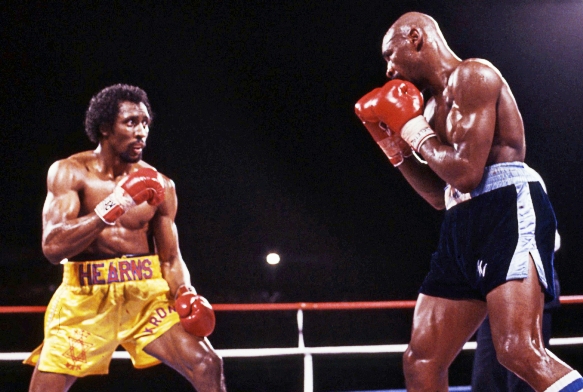
Ultimately, though, this former fan points to organizational and network entities as being the true problem.
“Back in the day, there was boxing on the big three channels,” Strba states. “But eventually, the channels and the governing bodies grew moribund. Crowns mean nothing today; they’re just another route to a payday, not a statement of ability. It’s like a kid’s party: everyone gets a prize. So what’s the point?”
Sadly, not an easy question to answer.
Like Strba, operations manager Scott Ginn, was once a diehard. “Yes,” he states, “I loved boxing. I had watched it since I was four-years-old with my father. I always had that connection, but Don King ruined it for me.”
Ginn is also turned off by what he calls “the pay-per-view aspect of the sport.”
“I understand the need to profit from an event but the way to do it is through advertising, like the Super Bowl. I shouldn’t have to pay a hundred bucks to see a decent fight. I don’t get charged money to see the Stanley Cup, the Super Bowl, or the World Series. Why do I have to pay to see a good boxing match?”
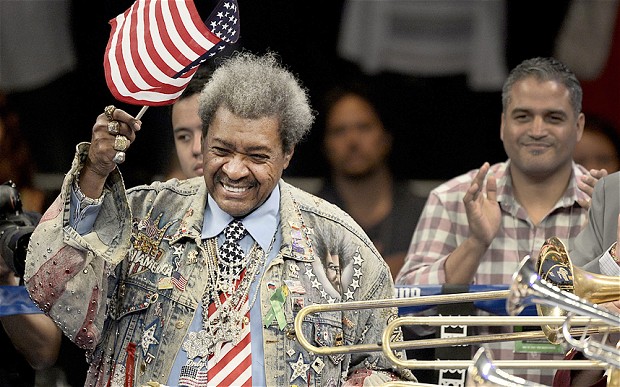
Interestingly, none of these former fans mentioned the supposed bane of boxing’s existence, mixed martial arts, as being a reason they now avoid the sport. Indeed, none of these men claimed to be fans of the UFC, Bellator or any other outlet for professional MMA. Again, this isn’t a scientific sample, but these men make it clear that, for them, the MMA argument doesn’t hold water, causing one to wonder if the two sports could actually prosper at the same time.
Indeed, the two main issues here ultimately appear to be greed and a lack of sizzle from today’s top fighters. Sure, Floyd Mayweather may be a household name, but internationally known boxers can’t be listed today, as was the case in the recent past. Of course, in the past household names actually faced off with some regularity, which in turn helped to make them household names.
Ultimately, though, it all comes down to two questions. Does boxing care to win back former fans? And if so, are the people who call the shots willing to make the necessary adjustments to do so? Making the fight everyone wants to see happen sometime soon might signal that they do. Here’s hoping. — Sean Crose



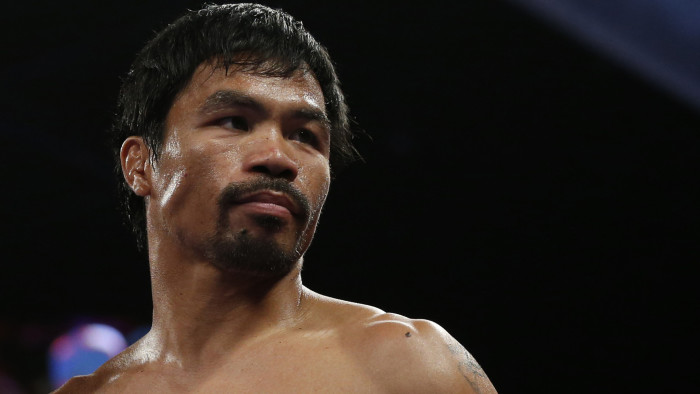


Just my theory – in 2 parts – from someone who grew up in the 90’s just in time to appreciate a game Tyson (& many 84 US Olympic alum) + prime time for Jones, Hopkins, Chavez, Gatti, Trinidad, Whitaker, Hamed, De La Hoya, Camacho, Mosley, Tony, McCallum etc. – not the names mentioned above, but still a great era for boxing.
1) in the 90’s most of these guys still fought 3-5 times a year. Even in the 2000’s from 2003 to 2007 Miguel Cotto fought 18 times & essentially everyone was a tough fight – my coach had me study all of them. Dude got a dozen or so under his belt & started fighting stiff competition that everyone today runs away from. Take away – hard for fighters now a days to get the recognition fighting 1-2 times per year, sometimes less. Part of this is rightly due to more emphasis on the health concerns of a fighter. So 70,80, 100 fight careers are not as common as they were, understandably. But its hard to stay relevant if you have 25-30 fights, the first 15-20 being almost worthless & with plenty of unwatchable cupcakes sprinkled in among those last 10 – hard to respect that. Which leads to…..
2) Mayweather – the overemphasis on protecting the “0” in boxing today, coupled with his flashy, but devoid of substance showmanship (if you can call showing off big money bets, motorcars, late night vegas outings that) has for me & many fans/fighters I know left a sour taste in our mouths. Fighters are coddled, you can’t lose lest your “stock” fades, lose 2 or 3 & you may become irrelevant, unable to garner any more significant paydays – & money (Mayweather) is of course what it’s all about – again, some justification on that, fighters deserve compensation for putting health & home on the line, that is respectable, but its gotten out of hand with all the secondary & tertiary financial interests in protecting a fighters rep. Take MMA – Robbie Lawlor (Welterweight Champion & PPV headliner) is a major draw with 10, yes 10 losses, a 27-10 record. That would simply be unacceptable in modern boxing. God forbid GGG beat Canelo & Golden Boy’s golden goose has a whooping 2 losses on his record – he might as well hang ’em up, reputation ruined forever. It’s absurd.
We need to give great fighters permission to lose & still be acknowledged as great – the overemphasis on the “0” has got to go.
That might just help boxing’s popularity return – at least to a point where we stop having to have this conversation.
Thanks for the article Sean. It is certainly a complex problem.
Well done, great article.
Totally relate to the viewpoints in both the article and JB’s comment. Greed, the “0” factor and everything else mentioned is exactly why I turned my back on boxing in the early 2000’s, after having been pretty much obsessed with it for 15 years.
But for the last year or so I’ve had some vague, hopeful feeling that boxing is starting to swing back up again, and now this feeling’s getting stronger because suddenly there’s quite a few great match-ups coming, because some of the best fighters are suddenly willing to stop ducking and start fighting eachother. And all I can say is long may it last, because nothing beats boxing at its best. Absolutely nothing.